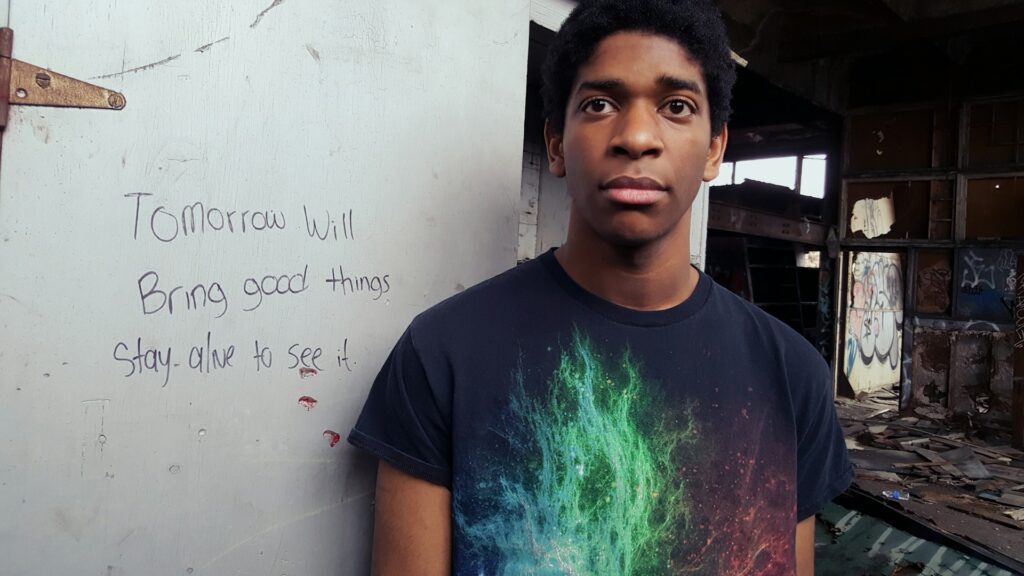Autistic people are often underestimated by the world in some pretty unfair ways.

The focus tends to land on what they struggle with, rather than what they excel at or the ways they show strength that many other people overlook. However, when you step back and look at the bigger picture, a different pattern emerges—one that reflects mental resilience, adaptability, and inner power. From emotional honesty to deep focus, here are just some of the reasons autistic people often have a kind of strength that deserves far more recognition.
They build resilience early on.

From a young age, many autistic people have to navigate a world that isn’t set up for them. They’re expected to adapt constantly—at school, in social situations, or even just trying to communicate the way other people do. That ongoing effort builds resilience that runs deep, even if it doesn’t always show outwardly.
It takes a strong mind to keep showing up in environments where you regularly feel misunderstood. That kind of emotional toughness doesn’t come from comfort—it comes from experience, and autistic people often accumulate it early on.
2. They think independently.

Autistic people tend to be less swayed by peer pressure or social trends. Their thinking is often based on logic, personal values, or deep interest rather than what everyone else is doing. That kind of inner direction takes mental strength, especially in a world that often rewards conformity.
It’s not always easy to be the one who questions things or goes against the grain. But this independence often leads to original ideas, honest perspectives, and the courage to stick to what feels right, even if it’s not popular.
3. They handle sensory overwhelm with serious grit.

Many autistic people experience intense sensitivity to things like light, sound, touch, or movement. But instead of shutting down completely, they find ways to manage, adapt, or carry on anyway. That kind of perseverance gets overlooked far too often. What would feel unbearable for someone else might just be part of daily life for an autistic person. And they don’t always get credit for the sheer mental effort it takes to keep functioning through it all.
4. They’re emotionally honest.

One of the most underrated forms of strength is being emotionally real, even when it makes people uncomfortable. People with autism are often direct about what they feel and what they need, and while that honesty can get misread as bluntness, it actually reflects a strong sense of inner clarity.
It takes courage to say what you mean without hiding behind social masks. Emotional honesty isn’t always easy, especially when everyone expects you to pretend. But autistic people often stick to what’s real, even if it costs them socially.
5. They learn to advocate for themselves.

Whether it’s asking for accommodations, correcting a stereotype, or explaining a boundary, self-advocacy often becomes part of life for autistic people. And speaking up repeatedly, especially when you’re not always taken seriously, requires serious inner strength.
Their assertiveness isn’t always loud or confrontational. Sometimes it’s just the quiet persistence of saying, “This matters to me” over and over, even when you’re tired of explaining. That’s a strength few people see, but it matters deeply.
6. They embrace deep focus.

Many people with autism have the ability to focus intensely on subjects that interest them. That kind of deep dive is often dismissed as “obsession,” but it’s actually a form of mental endurance and dedication that takes discipline and passion.
In a world built for distraction, being able to sustain attention and energy toward something meaningful is a huge strength. Whether it’s a creative project, a scientific problem, or a special interest, this kind of focus can lead to real insight and innovation.
7. They often grow strong boundaries.

After years of being pushed to mask or “blend in,” many autistic people develop a strong sense of self-protection. They learn to set limits—not because they’re cold or closed off, but because it’s a way of preserving their energy and well-being. That ability to say “no” or walk away when something doesn’t feel right is powerful. Boundaries are part of what helps people stay mentally strong, and autistic people often have to learn that skill earlier and more consciously than most.
8. They handle loneliness with grace.

Social isolation is a reality for many autistic people, not by choice but by circumstance. Even so, a lot of them find ways to create peace in solitude or build meaningful one-on-one connections, rather than chasing surface-level popularity. Learning to be content with your own company, and still finding value in life without constant external validation—is a quiet strength that’s often misunderstood. But it speaks volumes about emotional resilience.
9. They’re not afraid to go deep.

Autistic people often think deeply about topics other people overlook. Whether it’s moral questions, philosophical ideas, or patterns in the world around them, they tend to explore things below the surface. That mental depth is part of what makes their perspective so unique.
It takes strength to sit with complexity rather than skimming the surface. Deep thinkers don’t always have easy answers, but they do have the courage to keep asking honest questions, and that’s not something to take lightly.
10. They often endure misunderstanding.

There’s a particular kind of strength that comes from constantly being misread or dismissed and choosing to keep showing up anyway. Autistic people often live with the frustration of people assuming they’re rude, cold, or odd, even when that’s far from the truth. It takes a lot of energy to hold onto your identity when the world keeps mislabelling it. That inner commitment to self, even in the face of judgement, is an act of strength every single day.
11. They adapt constantly, whether you see it or not.

Autistic people often mask or adjust their behaviour just to get through the day. That kind of behind-the-scenes adapting isn’t always obvious, but it takes a major mental toll, and an incredible amount of effort. They may rehearse conversations in advance, mimic facial expressions, or suppress discomfort to avoid being seen as “difficult.” The fact that they manage to keep going while juggling all that pressure? That’s mental strength in motion.
12. They see through surface-level nonsense.

Because autistic people often miss or don’t prioritise social cues, they’re more likely to focus on what’s actually being said and done—not just how it looks. That gives them a kind of clarity other people sometimes lack. Being able to see through posturing, performative behaviour, or manipulation is a quiet superpower. It might not always be welcome in social circles, but it’s rooted in strong personal awareness and a low tolerance for insincerity.
13. They keep trying, even after setbacks.

Autistic people often have to work harder to get the same results, whether it’s forming friendships, getting through school, or thriving in the workplace. But despite rejection or difficulty, many keep trying, learning, and growing. That persistence is a real kind of strength. It doesn’t always look like big wins or loud confidence, but the determination to keep going after being knocked back again and again? That deserves serious respect.
14. They don’t fake it for approval.

While some autistic people learn to mask, many eventually get tired of it and choose to show up as they are. Not because it’s easy, but because pretending forever is exhausting. That decision to stop performing for acceptance takes real strength. In a world that often rewards people for blending in, choosing to be authentic, even if it makes people uncomfortable, is an act of self-respect. That’s a kind of strength worth celebrating more openly.


